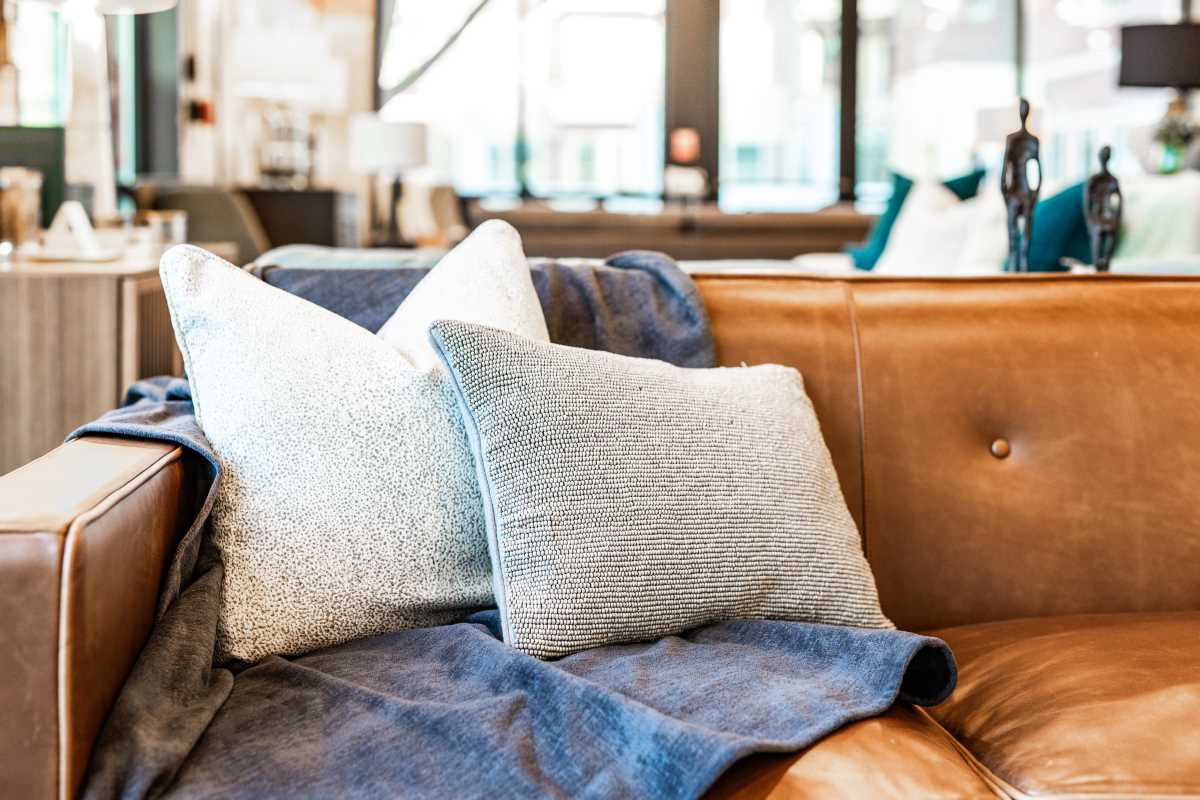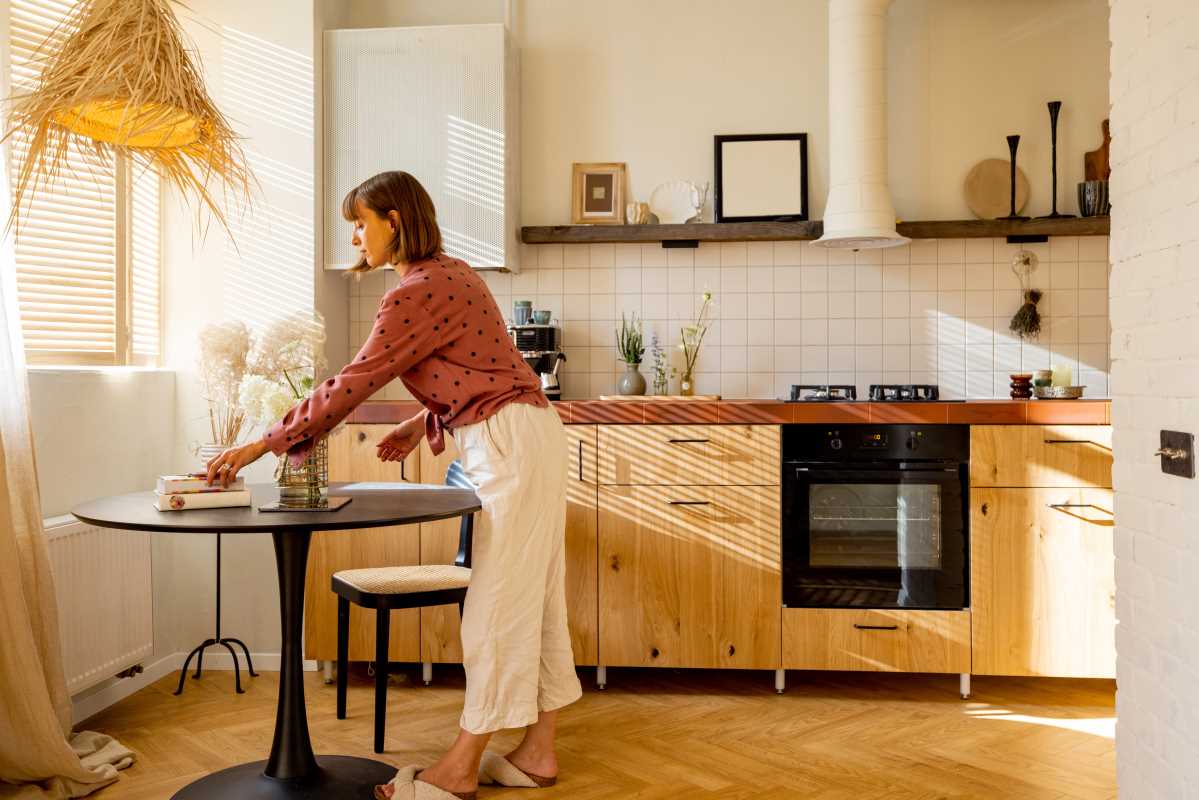In the realm of home essentials, bedsheets might not always take the spotlight, yet their importance is undeniable. They are not just decorative elements that complement your bedroom decor; they play a significant role in your quality of life.
From affecting your sleep quality and skin health to enhancing overall comfort, the right choice of bedsheets can make a world of difference.
Sleep Quality and Comfort
Bedsheets serve as the immediate surface that comes into contact with your skin while you sleep, making their texture and material crucial for a good night's rest.
A comfortable bedsheet can help regulate body temperature, which is essential for uninterrupted sleep. Certain materials, like cotton, are breathable and absorb moisture, keeping you cool during hot nights. In contrast, flannel sheets provide warmth, making them ideal for cold climates.
The feel of the bedsheet also affects comfort. Sheets that are too rough or coarse can cause irritation and disrupt sleep, while overly smooth or slippery sheets might not stay in place, leading to discomfort. Thus, choosing bedsheets with the right texture can enhance your sleep quality significantly.
Impact on Skin Health
Your skin's interaction with your bedsheets can influence its health. For those with sensitive skin or allergies, the material of the bedsheet is particularly important.
Hypoallergenic materials like organic cotton or bamboo can help minimize skin irritation and allergic reactions. These materials are less likely to cause friction or trap allergens, contributing to healthier skin.
Moreover, the breathability of bedsheets can prevent excess sweating, which not only disrupts sleep but can also lead to skin issues such as acne or rashes.
Investing in high-quality, breathable sheets can thus be a proactive measure for maintaining skin health.
Material Matters
The material of your bedsheets is perhaps the most critical factor in determining their comfort and functionality. Here’s a look at some popular options:
- Cotton: Known for its breathability and softness, cotton is a popular choice for bedsheets. Egyptian cotton, in particular, is renowned for its superior quality and luxurious feel.
- Bamboo: An eco-friendly option, bamboo sheets are naturally hypoallergenic and moisture-wicking, making them ideal for sensitive skin and warm climates.
- Linen: While more expensive, linen offers excellent breathability and durability. It becomes softer with each wash, making it a worthwhile investment for long-term use.
- Microfiber: Made from finely woven synthetic fibers, microfiber sheets are affordable and durable. However, they may not be as breathable as natural fibers.
Thread Count and Weave
When selecting bedsheets, thread count often comes up as a measure of quality. While higher thread counts can indicate softer sheets, they are not the sole indicator of quality. Sheets with a thread count between 200 and 400 can provide comfort and durability without the high price tag.
The weave of the sheet also affects its feel and durability:
- Percale: A plain weave that results in a crisp and cool texture, suitable for warm sleepers.
- Sateen: With a satin-like finish, sateen weave sheets are smooth and lustrous, offering a warmer feel.
- Jersey: Similar to a t-shirt material, jersey weave sheets are stretchy and casual, providing a cozy feel.
Practical Tips for Choosing the Right Bedsheets
Consider Climate: Your local climate should influence your choice of bedsheet material. Opt for breathable materials like cotton or linen in hot climates and warmer fabrics like flannel in colder areas.
- Address Allergies: If you suffer from allergies, choose hypoallergenic materials like bamboo or organic cotton. Ensure the sheets are free from harsh dyes or chemicals that could trigger allergies.
- Feel the Fabric: Whenever possible, feel the fabric before purchasing. This tactile experience can provide insight into the comfort and quality of the sheets.
- Durability: Consider how often you plan to wash the sheets. Materials like cotton and linen are durable and can withstand frequent washing, which is essential for maintaining hygiene.
- Personal Preferences: Ultimately, personal preference plays a significant role. If you prefer a crisp and cool feel, percale might be your best bet. For a softer, more luxurious touch, consider sateen.
Bedsheets are more than just a decorative element; they are an investment in your health and well-being.
By understanding the impact of different materials, thread counts, and weaves, you can make informed choices that enhance your sleep quality, support your skin health, and provide comfort tailored to your needs.
Next time you’re shopping for bedsheets, remember these considerations to ensure you’re making the best choice for a restful and rejuvenating sleep experience.
 (Image via
(Image via





